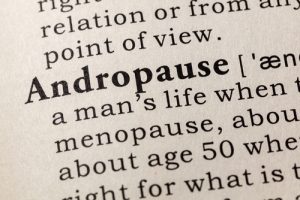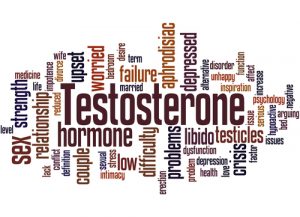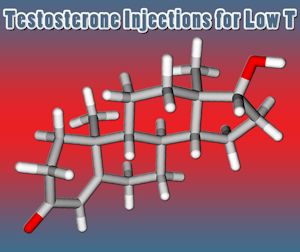 As men grow older, they become more likely to suffer from a condition colloquially known as Grumpy Old Man Syndrome.
As men grow older, they become more likely to suffer from a condition colloquially known as Grumpy Old Man Syndrome.
Everyone knows that as men grow older, usually as they approach 70, but sometimes before, they become more likely to experience irritability, grumpiness, impatience, and other related symptoms.
Apparently, this has a tremendous impact on the quality of life. Grumpy Old Man Syndrome is the result of a combination of factors, some psychological, some physiological.
From the psychological perspective, this is an era where men often feel the need to wall themselves off to protect themselves from sadness and despair.
They are forced to contend with ideas of their mortality while they also have to deal with the passing of their loved ones and friends. Human beings are also very goal-oriented, and as the amount of time that one has left begins to dwindle, this can be detrimental to mood and health.
This is also a period where health problems become more frequent and more severe.
But we also know that human beings are resoundingly resilient creatures. What prevents aging men from maintaining their stalwart and robust nature as they get older? The growing body of research vigorously contends that Testosterone Deficiency plays a central role.
The Detrimental Impact of Andropause
Andropause is a condition that afflicts millions of men across the United States.  In fact, given a long enough life, every man would eventually struggle with issues related to diminished Testosterone Levels.
In fact, given a long enough life, every man would eventually struggle with issues related to diminished Testosterone Levels.
That's because men, like women, also undergo hormonal changes that are directly attributable to age. Testosterone Production maxes out during puberty and then drops to normalized, healthy levels during early adulthood.
In fact, during our twenties, we produce more than enough Testosterone to keep us feeling robust and looking healthy. Starting around thirty, T-Levels begin to diminish slowly.
Scientists have long been aware of this fact and have spent generations attempting to uncover why. By the time that the average man reaches 70 years of age, their Testosterone Production drops by around 50%.
Of course, every man is different and can experience this decline at a slightly slower or faster rate. Furthermore, lifestyle choices (like smoking and sedentary lifestyle) and other health conditions (like diabetes and obesity) can further deplete Testosterone Levels.
How Does Andropause Compare to Menopause?
 Both Menopause and Andropause represent a distinct change in physiology.
Both Menopause and Andropause represent a distinct change in physiology.
The difference between the two conditions revolves around the severity and speed of onset.
Menopause occurs rapidly during late mid-life. For a year or less, the feminine Hormonal Balance tips dramatically and permanently as ovulation stops.
For men, this Hormonal Change occurs very slowly but still leads to massive changes over time. Beginning around age thirty, men start to lose around 1%-1.5% of their Testosterone Production annually.
For years, this is barely noticeable, but from the late-40s and beyond, these changes can be quite dramatic. Recent research shows that around ¼ men over thirty have demonstrably low Testosterone Levels.
The majority of guys with low Testosterone Levels don't show symptoms, but approximately 5% of men are considered to suffer from Low-T.
Many believe that in the future, Low-T Diagnoses will be sure to rise as it becomes more socially acceptable to seek treatment and as the medical community becomes more acutely aware of the harmful effects of Testosterone Deficiency.
What Are The Symptoms of Testosterone Deficiency?
Most folks first consider Low Sex Drive and diminished sexual function when  they think of Low-T, but it's a big deal and affects a wide range of physiological tasks that are necessary to support health and vitality.
they think of Low-T, but it's a big deal and affects a wide range of physiological tasks that are necessary to support health and vitality.
Men with Testosterone Deficiency are more likely to suffer from low energy, poor sleep quality, hot sweats, irritability, depression, cognitive fogginess, joint pain, nervousness, and anxiety.
Testosterone is an incredibly important hormone about male (and female!) health, but it's also increasingly precious with every passing year.
The problem with Low-T is that many of the symptoms cause the condition to progress further. Anxiety increases cortisol levels which also depletes Testosterone Levels.
Body fat converts Testosterone into Estrogen, causing the current supply of Free Testosterone to drop even lower.
Are You Suffering from Grumpy Old Man Syndrome?
If, as you grow older, you feel quicker to anger than when you were younger and more prone to irritability and self-isolation, your problem may be hormonal  rather than psychological.
rather than psychological.
Our Licensed HRT Clinic is highly trained in helping patients that are struggling with Grumpy Old Man Syndrome learn how to enjoy their lives again.
We can arrange for an appointment with a local LabCorp or Quest Diagnostics Representatives so that you can be tested for Testosterone Deficiency.
If the diagnostic analysis shows that you can benefit from Bio-Identical Testosterone Therapy, we can arrange for you to initiate Hormone Replacement Therapy so that you can experience the benefits of improved Hormone Balance in a matter of days!
References
'Grumpy old man syndrome' a medical condition
The reasons behind Grumpy Old Man syndrome
Contact Us Today For A Free Consultation

- Testosterone for Women [Last Updated On: December 1st, 2023] [Originally Added On: December 29th, 2013]
- Testosterone Androgen [Last Updated On: December 11th, 2023] [Originally Added On: December 29th, 2013]
- Testosterone and Body Building [Last Updated On: December 14th, 2023] [Originally Added On: December 30th, 2013]
- Testosterone Levels [Last Updated On: December 6th, 2023] [Originally Added On: December 31st, 2013]
- Testosterone Gel, Cream, and the Testosterone Patch [Last Updated On: November 28th, 2023] [Originally Added On: December 31st, 2013]
- Buy Testosterone | Types of Testosterone Replacement Therapy Programs, Injections, Cream and Gel [Last Updated On: December 13th, 2023] [Originally Added On: December 31st, 2013]
- Buy Testosterone Injections Online, Testosterone Prescription for Low T, Testosterone Replacement Therapy [Last Updated On: October 16th, 2020] [Originally Added On: January 1st, 2014]
- Aging and Testosterone Replacement Therapy [Last Updated On: December 12th, 2023] [Originally Added On: January 3rd, 2014]
- What Causes Low Testosterone [Last Updated On: December 10th, 2023] [Originally Added On: January 7th, 2014]
- Hormone Levels in Men [Last Updated On: December 4th, 2023] [Originally Added On: January 12th, 2014]
- Hormone Level Testing [Last Updated On: November 29th, 2023] [Originally Added On: January 13th, 2014]
- Types of Testosterone Products and Delivery [Last Updated On: December 8th, 2023] [Originally Added On: January 22nd, 2014]
- Testosterone Therapy Helps Men with Low-T Ward Off Prostate Cancer [Last Updated On: May 29th, 2024] [Originally Added On: December 29th, 2019]
- The Importance of Dietary Fat for Testosterone Production [Last Updated On: July 8th, 2024] [Originally Added On: January 2nd, 2020]
- Testosterone Deficiency and Low-T at Epidemic Levels Among Men in the United States [Last Updated On: May 27th, 2024] [Originally Added On: May 17th, 2020]
- The Effects of Testosterone Therapy on Male Patients -- Who Should Use Testosterone? [Last Updated On: December 20th, 2023] [Originally Added On: June 16th, 2020]
- Does Ibuprofen Contribute to Low Testosterone? [Last Updated On: January 27th, 2024] [Originally Added On: June 20th, 2020]
- The Link Between Testosterone and Lower Rates of Autoimmune Diseases Among Men [Last Updated On: January 30th, 2024] [Originally Added On: June 21st, 2020]
- Weight Cycling and the Problem with Crash Dieting [Last Updated On: April 8th, 2024] [Originally Added On: July 30th, 2020]
- Reexamining Bio-Identical Testosterone Therapy [Last Updated On: June 18th, 2024] [Originally Added On: August 12th, 2020]
- Understanding how Muscle and Fat Impact Body Mass, Weight, and Health [Last Updated On: April 15th, 2024] [Originally Added On: August 25th, 2020]
- The Role of Nitric Oxide in Cancer Proliferation And Prevention [Last Updated On: May 3rd, 2024] [Originally Added On: August 26th, 2020]
- Understanding Heartburn in the 21st Century [Last Updated On: April 24th, 2024] [Originally Added On: August 28th, 2020]
- What is Erectile Dysfunction? [Last Updated On: April 20th, 2024] [Originally Added On: August 30th, 2020]
- Sermorelin Acetate Drug Information [Last Updated On: April 7th, 2024] [Originally Added On: August 31st, 2020]
- Exercise and Mental Health [Last Updated On: April 5th, 2024] [Originally Added On: September 1st, 2020]
- The Importance of Proteins, Carbs, and Fats [Last Updated On: March 11th, 2024] [Originally Added On: September 2nd, 2020]
- Low-T Treatment Before and After -- How Testosterone Therapy Improves Vitality [Last Updated On: April 9th, 2024] [Originally Added On: September 6th, 2020]
- Changes to LabCorp Guidelines for Low-T Diagnosis and How They Impact Your Treatment [Last Updated On: July 14th, 2024] [Originally Added On: September 22nd, 2020]
- The Effects of Testosterone on Asthma Prevalence Among Men and Women [Last Updated On: February 19th, 2024] [Originally Added On: October 6th, 2020]
- 7 Exercises to Elevate Testosterone Levels [Last Updated On: June 13th, 2024] [Originally Added On: October 10th, 2020]
- Vitamin A is Essential for Good Health - Are You Getting Enough ? [Last Updated On: April 16th, 2024] [Originally Added On: October 14th, 2020]
- Testosterone and Diet – How to Support Testosterone Levels with Healthy Eating [Last Updated On: June 7th, 2024] [Originally Added On: October 29th, 2020]
- The Significance of Telomeres in Stem Cell Treatments [Last Updated On: March 16th, 2024] [Originally Added On: November 27th, 2020]
- The Influence of Testosterone on Protective Mating Behaviors in Men [Last Updated On: January 25th, 2024] [Originally Added On: December 6th, 2020]
- The Role of Testosterone in Women's Health [Last Updated On: December 24th, 2023] [Originally Added On: December 7th, 2020]
- Testosterone Promotes Bone Health and Can Help Treat Osteoporosis [Last Updated On: February 15th, 2024] [Originally Added On: December 17th, 2020]
- The Relationship Between Testosterone and Cortisol [Last Updated On: April 2nd, 2024] [Originally Added On: December 19th, 2020]
- The Importance of Sex Hormone-Binding Globulin (SHBG) for Healthy Testosterone Levels [Last Updated On: March 9th, 2024] [Originally Added On: December 28th, 2020]
- 12 Health Issues That Can Kill Libido and Limit Sexual Performance [Last Updated On: May 23rd, 2024] [Originally Added On: January 3rd, 2021]
- 4 Foods to Boost Your Testosterone Levels [Last Updated On: February 7th, 2024] [Originally Added On: January 4th, 2021]
- Low Testosterone Symptoms [Last Updated On: December 31st, 2023] [Originally Added On: January 7th, 2021]
- Is Male Menopause Real? The Science of Andropause [Last Updated On: January 15th, 2024] [Originally Added On: January 11th, 2021]
- Relieve Fatigue and Increase Energy with Testosterone Replacement Therapy [Last Updated On: January 16th, 2024] [Originally Added On: January 16th, 2021]
- How to Administer a Testosterone Injection -- Low-T Injection Guide [Last Updated On: February 28th, 2024] [Originally Added On: January 17th, 2021]
- Testosterone Levels Associated with Serotonin Activity in the Brain [Last Updated On: March 26th, 2024] [Originally Added On: January 19th, 2021]
- The Effects of Beer on Testosterone Production and Gynecomastia [Last Updated On: March 21st, 2024] [Originally Added On: January 30th, 2021]
- Testosterone Frequently Asked Questions [Last Updated On: February 6th, 2024] [Originally Added On: February 26th, 2021]
- Testosterone Supplements: Vitamin and Amino Acid Pills Versus Real Testosterone [Last Updated On: November 21st, 2024] [Originally Added On: March 1st, 2021]
- Testosterone Side Effects, Risks, Dangers and Negative Effects [Last Updated On: November 7th, 2024] [Originally Added On: March 2nd, 2021]
- Testosterone for Men [Last Updated On: February 20th, 2024] [Originally Added On: April 13th, 2021]
- Testosterone Testing [Last Updated On: November 9th, 2024] [Originally Added On: May 7th, 2021]
- Hormone Replacement Therapy: Commonly Asked Questions [Last Updated On: February 20th, 2024] [Originally Added On: June 16th, 2023]
Word Count: 830




















